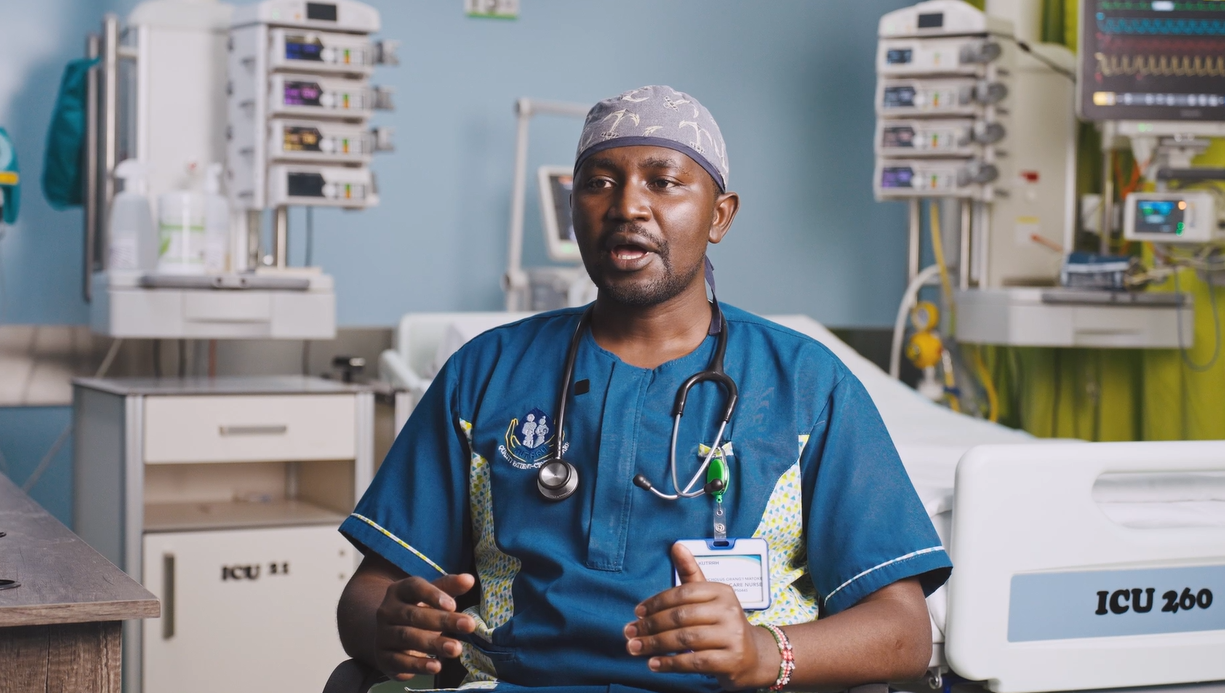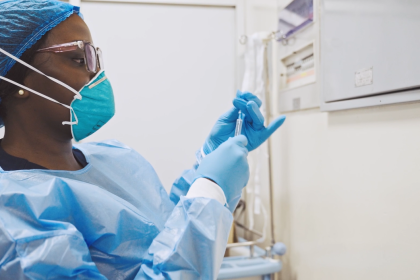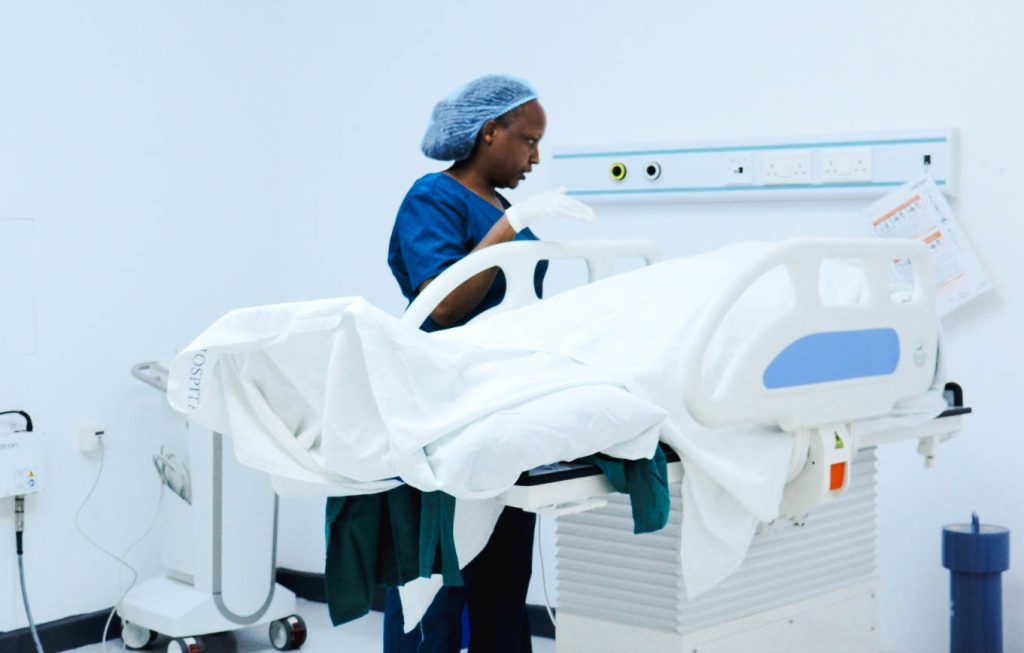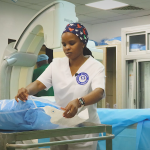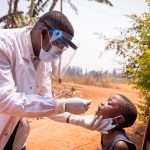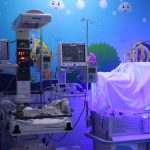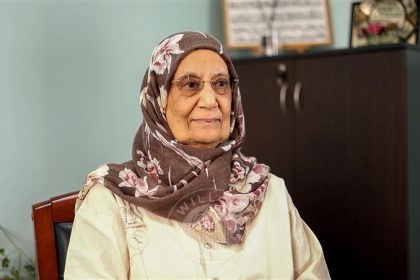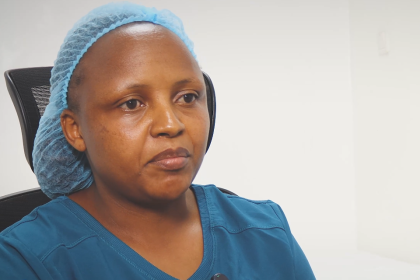‘It is a race against time,’ says Nicholas Orangi. ‘Every minute counts in the critical care unit.’
Every day, patients stream into Kenyatta University Teaching Referral & Research Hospital (KUTRRH), clinging to hope for a cure.
Some patients leave healed, while others deteriorate and are rushed to the ICU—their survival uncertain, each moment a fragile fight.
Here, surrounded by the relentless beeps of machines, Nicholas Orangi Matoke and his ICU team work tirelessly under intense pressure to keep patients alive.
As the ICU nurse in charge, Orangi leads this high-stakes battle where expertise, empathy, and split-second decisions mean the difference between life and death.
Orangi’s days are defined by urgency. “It’s a race against time,” he says. “Every minute counts in the critical care unit.”
From the moment his shift begins at 7am, there is no time to waste. His first task is to receive the handing-over report from the previous night shift team, a critical moment where vital information about patients’ conditions is passed on.
In ICU, we don’t take any chances… sophisticated machines must be in perfect condition
“The first thing we do is receive reports from those who worked the night shift,” he explains. “This ensures that the team is fully aware of any developments or challenges faced by the patients during the night.”
After assessing the report, Orangi and his team conduct a thorough safety check of the different ICU machines.
“In ICU, we don’t take any chances,” he says. “We use highly sophisticated machines to render care, and these must be in perfect condition.”
Every machine—ventilators, dialysis, monitors—is tested for flawless operation. In critical care, there’s no room for error; lives hang in the balance.Then begins the patient assessments: meticulous, head-to-toe checks—heart, lungs, every vital sign—leaving nothing to chance.
“We prioritise based on the patient’s most urgent needs,” Orangi explains.
In the ICU, where lives hang by a thread, every check must be fast and precise—no room for mistakes. The job doesn’t just drain the body; it wears on the heart. He remembers COVID’s darkest days—when the ICU overflowed with the critically ill, and every shift felt like a war.
“We were working under very challenging circumstances, and many patients had underlying issues. Some did not make it,” he reflects. “It was really emotional, but our team worked in harmony, which made it easier to cope.”
The human connection is as important as machines and treatment
Despite the emotional challenges, the ICU nurses remain focused on saving lives. And though not every patient can be saved, the goal is to provide the best possible care and comfort.
“We involve families, and sometimes they thank us for taking them through the journey, even if the outcome isn’t what we hoped for,” he says. “In such cases, we ensure that we provide emotional support to both the patient and their family.”
The team’s ability to involve families in the care process builds trust, and in the ICU, where uncertainty often looms, this human connection can be as important as the machines and treatments.
Orangi says ICU operations are not just about emergencies, but also recovery and triumphs.
He recounts one case that stands out: “I received a patient who was pregnant and had malaria. All her systems were shutting down, and she was very critical. We managed to do a continuous renal replacement therapy to help the failing kidneys, and within 48 hours, she was up and about.”
In the chaos of critical care, moments of triumph stand tall
He continues: “We had targeted 72 hours for recovery, and this made me very happy. A few months later, she delivered a healthy baby boy.”
Such stories urge Orangi and his team on, even under insurmountable challenges as “In the chaos of critical care, moments of triumph stand tall,” Orangi says, underscoring the immense sense of satisfaction that comes from saving a life.
Critical care nursing is not a solitary job and solidarity within the ICU team is vital in maintaining their resilience under pressure.
“Our teams work very well in harmony. This is crucial because, in critical care, you cannot afford any missteps,” says Orangi.
For Orangi, nursing is more than a profession, it is a calling
Management support is also important and he singles out the Director of Nursing Services at KUTRRH, Pamleila Ntwiga, who “goes the extra mile to ensure that each and every nurse is taken care of.”
For Orangi, nursing is more than a profession; it is a calling. “In critical care, every heartbeat saved is a reason to keep going,” he says. “The sense of fulfilment from seeing patients recover is unmatched. That’s what motivates me every day.”
On the ICU frontlines, Orangi battles at life’s edge. One decision changes everything. This is nursing at its fiercest—skill, grit, and humanity in action.



